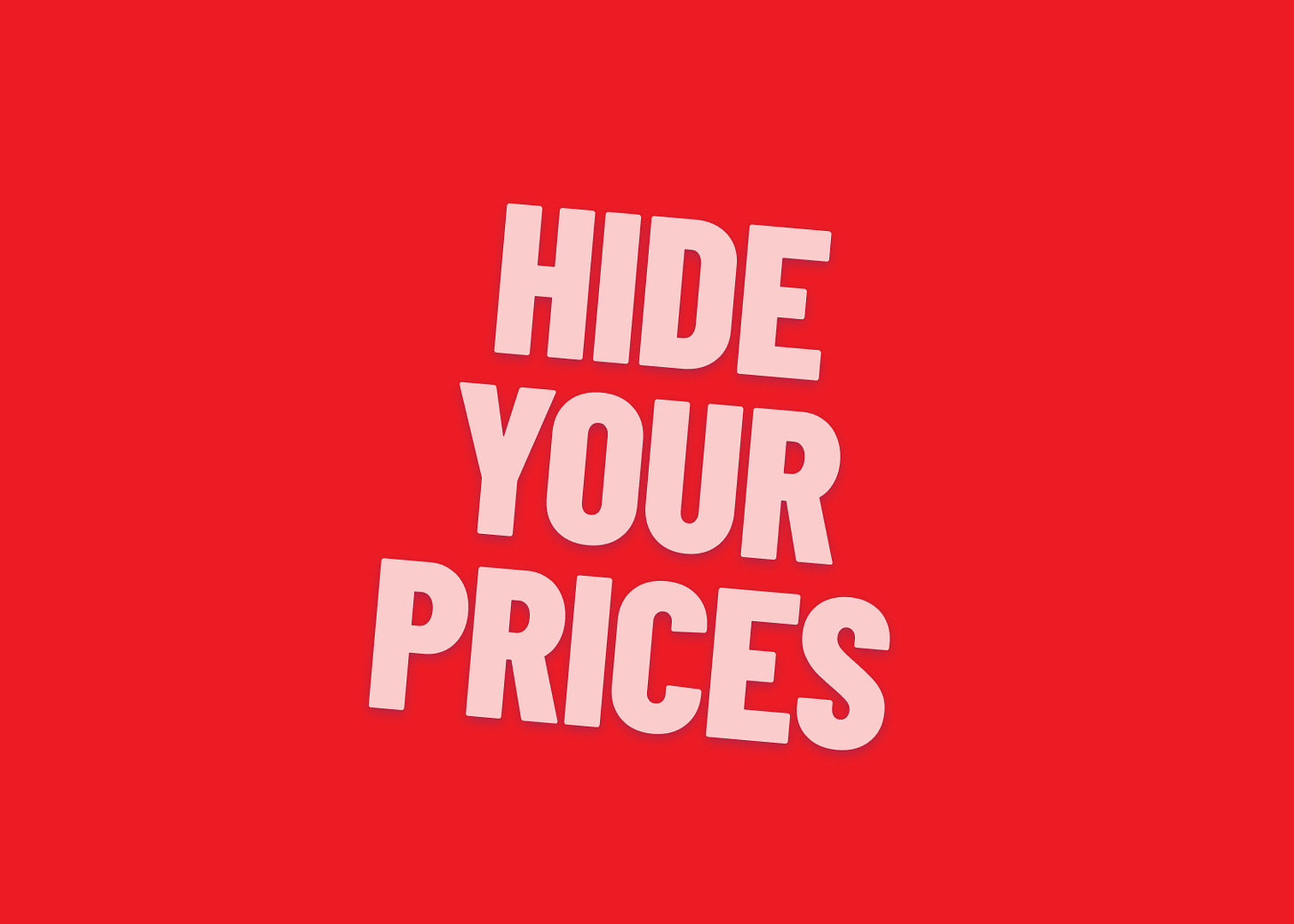Why "transparent pricing" can be a terrible advice
Every business guru seems to preach the same gospel: "Be transparent! Put your prices right on your website!"
It makes sense on the surface. You're answering a potential customer's first question, and who doesn't like being more informed? But here's the uncomfortable truth that most advice overlooks:
What's in your customer's best interest isn't always what's in your business's best interest.
Forcing everyone down the path of radical transparency, especially for complex or creative services, can be a massive strategic error. Before you slap a price tag on your homepage, you need to ask yourself a few critical questions.
Are you drowning in leads?
The most common argument for posting prices is that it "qualifies leads" and "saves you time."
This is great advice... if you're already swamped with inbound inquiries from referrals and social media, and your biggest problem is filtering out the noise. For you, price becomes an effective gatekeeper.
But if you're still building momentum, your primary goal is to *start* conversations, not end them prematurely. Hiding your prices forces a potential client to talk to you, giving you the chance to prove your value before they make a snap judgment based on a number.
Don't worry about "wasting time" on qualification if a lack of leads is your real problem.
Is your offer dead simple?
If you're selling a product, fixed pricing is a no-brainer. But creative and consulting services, or even software-as-a-service, are a different beast entirely.
I've seen so many service businesses try to force their complex offerings into neat little "packages." The result is often a confusing menu of options that creates more questions than it answers, sending potential clients scrambling for clarity... or to a competitor.
If your offer requires any level of discovery or customization, a fixed price tag is a lie. A better, more honest approach is to use a "starting from" price, signaling a floor without locking you into a rigid structure.
Is price your #1 weapon?
This is the most important question of all.
If your core competitive advantage is that you are cheaper than everyone else, then by all means, shout your prices from the rooftops. It's your strongest sales pitch.
But if you compete on quality, expertise, service, or results, leading with price is like a Michelin-star chef putting the calorie count above the name of the dish. You're immediately framing the conversation around cost, inviting a direct comparison with cheaper alternatives before you've had a chance to explain *why* you're worth more.
When you hide your price, you force a conversation about value. When you show your price, you invite a conversation about cost.
So, when the internet screams for transparency, remember your real goal: earning a conversation. It’s your opportunity to build trust and shift the focus away from "cost".
And if you need help communicating your value and defending your prices, I'm here for you, just schedule a call. Free for my amazing subscribers :)
Have a great week!



